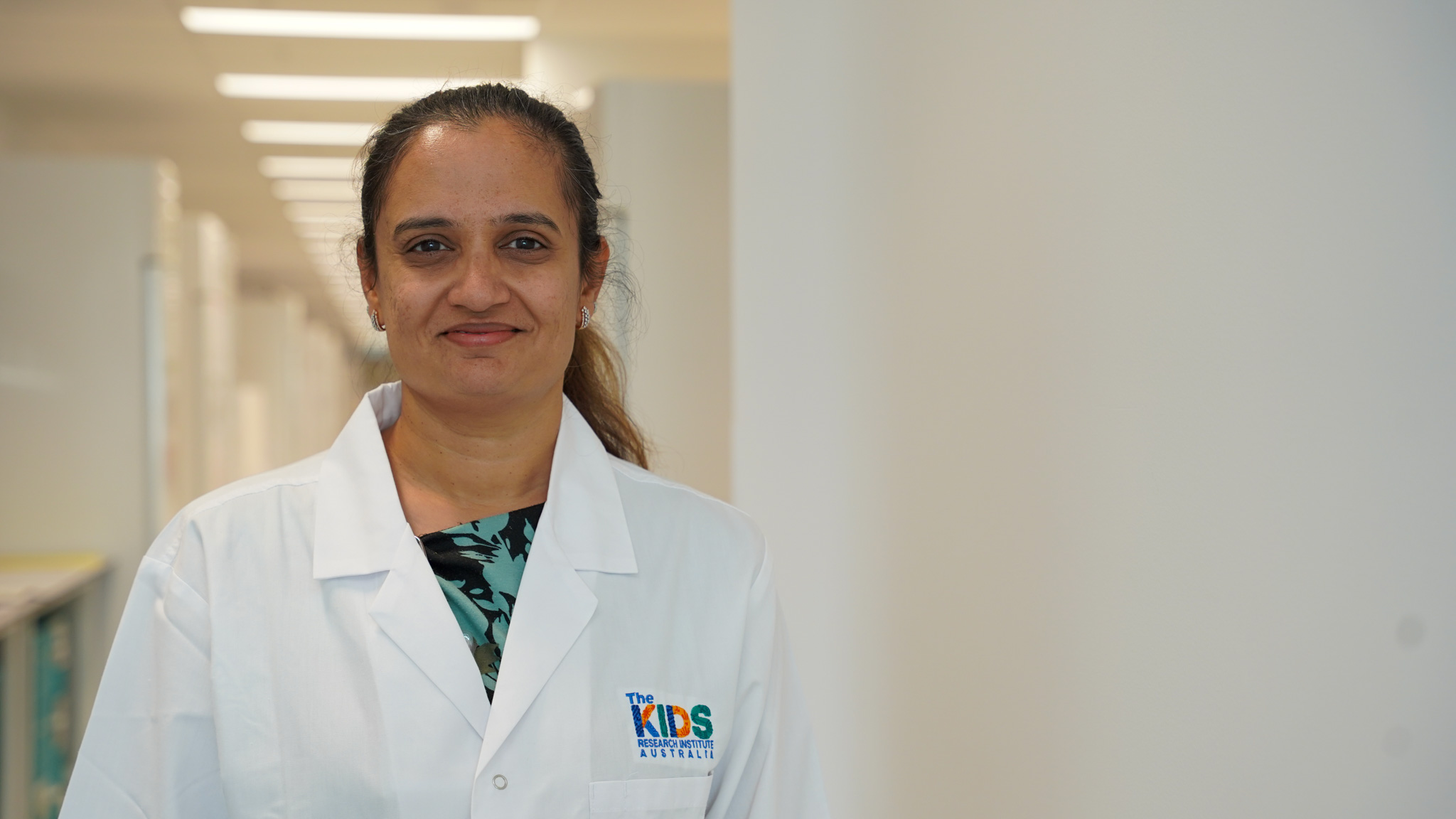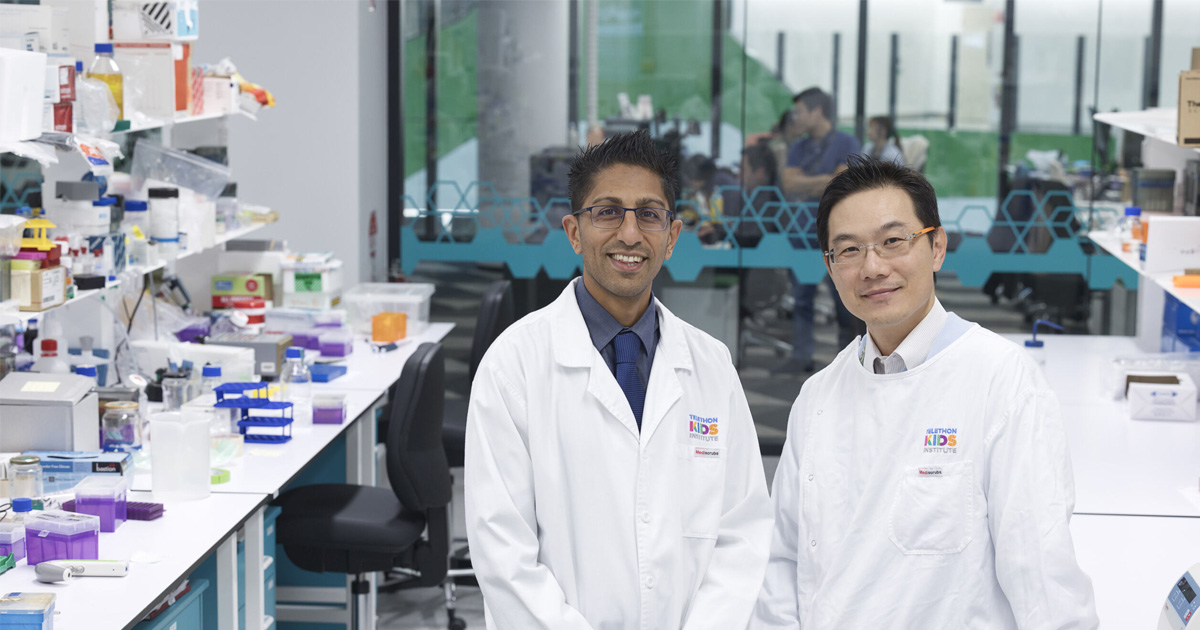Search

News & Events
Child health research made possible through Telethon’s supportThe generous support of Western Australians through Channel 7’s Telethon is helping to fund life-changing child health research, with two The Kids Research Institute Australia researchers awarded significant grants.

News & Events
Premier’s Science Awards finalists recognised for work in physical activity, cancer and mental healthFour The Kids Research Institute Australia researchers from a diverse range of fields have been named as finalists for the prestigious 2022 Premier’s Science Awards.

News & Events
Five The Kids researchers awarded prestigious grantsSeveral The Kids Research Institute Australia researchers will share in more than $7.5 million in prestigious Investigator Grants to pursue a range of innovative child health research.

News & Events
New funding to tackle undiagnosed diseases and improve cancer immunotherapyOne of the researchers who helped crack the code of 10-year-old Northam girl Charlotte Patterson’s incredibly rare disease has received State Government funding that will allow her to use the same methods to rapidly assess the cases of hundreds more patients living with undiagnosed disease.

News & Events
Brain Cancer Awareness Month Q&A: Dr Hetal Dholaria’s vital work for WA KidsEach year in Australia, around 120 children are diagnosed with brain cancer, the leading cause of cancer-related death in young people.
Research
Anti-metabolite chemotherapy increases LAG-3 expressing tumor-infiltrating lymphocytes which can be targeted by combination immune checkpoint blockadeAntibodies that target immune checkpoints such as cytotoxic T lymphocyte antigen 4, programmed cell death protein/ligand 1 are approved for treatment of multiple cancer types.

News & Events
New study uncovers dual benefit of bone-protecting treatment for childhood leukaemiaA groundbreaking study from cancer researchers at The Kids Research Institute Australia has identified a promising new therapeutic strategy for children battling the most common childhood cancer – B-cell acute lymphoblastic leukaemia.
Research
Intravascular Tumor Extension and Pulmonary Tumor Embolism in Children With Solid Malignancies: Is There a Role for Inferior Vena Cava Filters?Intravascular tumor extension is an uncommon complication of solid malignancies that, when present in the inferior vena cava (IVC), can result in fatal pulmonary tumor embolism. Currently, neoadjuvant chemotherapy and surgery are the mainstays of treatment; however, there are no consensus guidelines for management.
Research
From signalling pathways to targeted therapies: unravelling glioblastoma’s secrets and harnessing two decades of progressGlioblastoma, a rare, and highly lethal form of brain cancer, poses significant challenges in terms of therapeutic resistance, and poor survival rates for both adult and paediatric patients alike. Despite advancements in brain cancer research driven by a technological revolution, translating our understanding of glioblastoma pathogenesis into improved clinical outcomes remains a critical unmet need.
Research
Temporal changes in childhood cancer incidence and survival by stage at diagnosis in Australia, 2000–2017The Toronto Paediatric Cancer Stage Guidelines are a compendium of staging systems developed to facilitate collection of consistent and comparable data on stage at diagnosis for childhood cancers by cancer registries.
